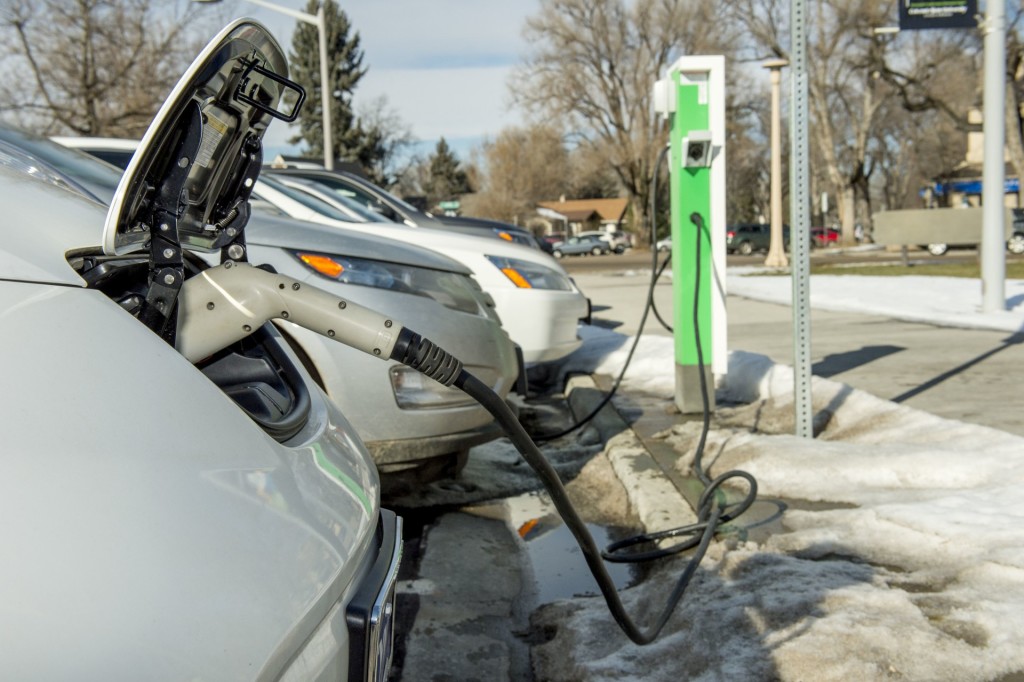
A policy brief from Colorado State University researchers offers guidance for leaders from the world’s largest economies to leverage new technologies, such as electric vehicles, to make major headway in reducing global carbon emissions. Photo by CSU Photography
In late November, leaders from the world’s 20 largest economies will convene – hosted virtually by Saudi Arabia – for the annual G20 Summit to discuss key policies for the global economy. Ahead of that “Group of Twenty” gathering, another summit takes place: the T20 Summit – short for “Think20” – that serves as the “ideas bank” for the G20 Summit.
This year, a team of engineering researchers from Colorado State University developed a dedicated policy brief for the T20 Summit, which was accepted as one of just two dozen for the summit’s “climate change and environment” taskforce.
Their report details ways to reduce emissions through transportation technology and policies.
“The goal is to add value to the G20 process with evidence-based public policy proposals,” said Thomas Bradley, Woodward Professor and chair of the Department of Systems Engineering in the Walter Scott Jr., College of Engineering, who authored the report along with Timothy Coburn, a professor of systems engineering, and Baha Al-Alawi, a CSU triple engineering alumnus and senior manager of market and industry analysis at CALSTART, a clean transportation think tank. They presented their recommendations virtually in September in advance of the culminating T20 sessions Oct. 31 and Nov. 1.
The policy brief details ways in which leaders from the G20 can leverage new technologies, such as electric vehicles, and goals, such as for improving commercial shipping, to make major headway in reducing global carbon emissions.


Reducing emissions, fostering growth
The effort is not just about addressing the climate crisis. As part of the source for G20 discussions, the plan also hinges on how to foster growth. “All of this is about enabling the economic benefits of transportation within environmental goals,” Bradley explained.
Coburn agreed: “It really gets at this year’s G20 Summit theme of ‘realizing opportunities of the 21st century for all.’”
As keen-eyed engineers, the team also identified a new challenge and turned it into an opportunity. As COVID-19 began spreading around the globe earlier this year, it drastically altered transportation patterns, reducing transoceanic flights as well as local car commutes. “We had to reorient our thinking in the middle of our preparations to consider how the advent of COVID-19 might impact transportation going forward,” Coburn said.
For example, the virus might, on the one hand, drive people away from more efficient mass transit, such as buses and light rail, and back to individual options like cars. But it also has shown the world “images of clean air in urban areas,” as evidence “that [greenhouse gas emissions] can be reduced quickly” when we stop using so much transportation overall, according to the report.
“COVID-19 presents a particularly unique opportunity to redevelop the global and US economy from an environmental and climate perspective,” Coburn said. “It presents an opportunity to sort of reset the way we do things by simultaneously aligning our response to COVID-19 and climate change.”
A new future for transportation
The Group of Twenty, which includes the 19 countries with the largest economies and the European Union, accounts for about two-thirds of the world’s population but more than four-fifths of global energy use – and more than 90% of vehicles (light- and heavy-duty) sold. So if these governments can adopt new policies around reducing transportation emissions, it could have a major impact on the trajectory of the globe’s climate, and quickly.
To address these issues, the report suggests three main strategies:
- Start with easy entry points and learn from them. For example, focus on one geographical area of early adopters to scale up electric vehicle infrastructure. Or pick one commercial application, such as electric forklifts, and adapt technology from there.
- Set concrete goals. They propose that all G20 governments should pledge to have at least 30% of all new vehicles sold be zero-emissions (such as all-electric) by 2030.
- Find more efficient commercial transport strategies. Shipping is a sizable contributor of emissions; moving just international freight toward more rail and ships and away from planes and trucks could cut global emissions by 30%.
“These steps will enable near-term transition to lower emissions,” Bradley said.
The collective expertise of the team underlays their report’s success. “We have done lots of work on transportation technology and policy under contract to automakers, the U.S. Department of Energy, utilities, and others,” Bradley said. “So this policy brief is built on many years of research in this area.”
Making the global local
Much of the policy brief provides recommendations as to how national governments can adjust their goals and policies to create a greener transportation landscape.
This can be applied to the state and local level as well.
“Transport makes up a significant fraction of global greenhouse gases, and the same is true for Colorado,” Bradley said. About one third of all carbon emissions in the state are generated by transportation, according to the Colorado Department of Transportation.
The state has put plans in place to change this, and in many cases, Colorado’s goals exceed those in the T20 recommendations. For example, the state aims to have 940,000 of the approximately 1.8 million light vehicles on the road to be electric by 2030, and to reduce greenhouse gases by 50% of 2005 levels by the same year.
Individuals can also take action.
“As we move to reduce greenhouse gas emissions to meet our goals of reducing changes to the global climate, Coloradoans can conserve energy and adopt new technologies – including in transportation,” Bradley said. This could mean opting for other modes of transport than petroleum-burning cars, reducing trips, and most importantly making your voice heard to local and state leadership.
Bradley and his coauthors will continue advocating that governments take the lead on major policy shifts. “One hopes that these ideas can be adopted by the G20,” he said.
And there is no time like the present. As the team noted in their report: “The recovery from the COVID-19 pandemic is the perfect time to align economic redevelopment and climate change to create a cleaner and better planet in a shorter time frame than was previously imagined.”